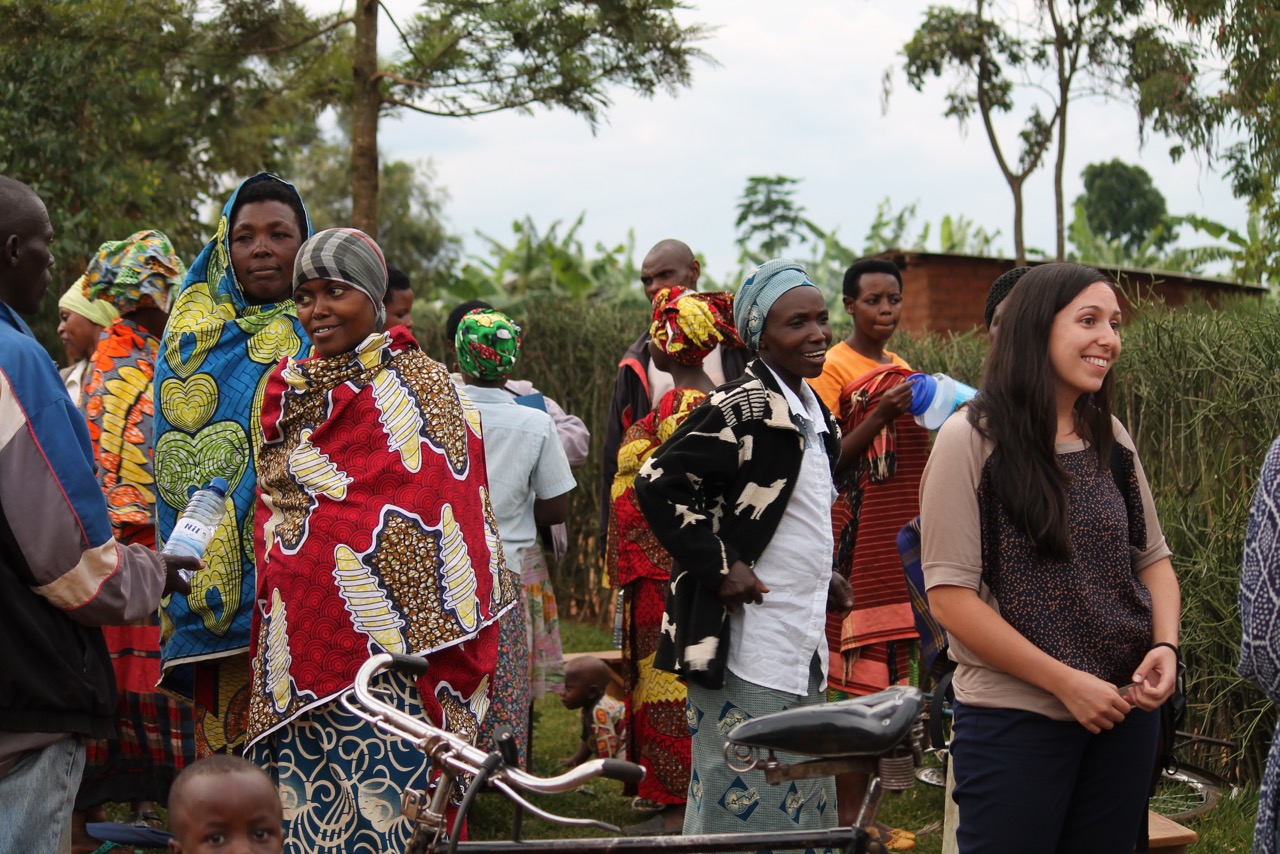 SPS graduate Mary Miner, right, helps with financial-literacy training in Rwanda.
SPS graduate Mary Miner, right, helps with financial-literacy training in Rwanda.
December 1, 2015 | Autumn 2015 Newsletter
In the work
they do, a School of Public Service graduate and her business partner trumpet
an East African proverb: "Little by little fills the bowl."
Those words
greet you upon your visit to the website of Atikus Investments Inc., a socially
focused for-profit enterprise that SPS graduate Mary Miner co-founded through a
mission and vision that aligned with her head and heart.
"I
really love what I'm doing," said Miner, who graduated from SPS in 2013 with
a degree in Public Service Management. "I don't even think of it as
work."
Atikus aims
to help financial companies increase access to loans to underserved people,
particularly women, all over the world. It does that through use of data, technology
and credit insurance — plus a commitment to, as the company says,
"unlocking the economic potential of the underserved — one loan, one
business, and one entrepreneur at a time."
Atikus? You
guessed it. It's a tribute to Atticus Finch, the father, lawyer and hero who
stood up for the powerless and the underserved in Harper Lee's 1960 literary masterpiece,
"To Kill a Mockingbird." The company even offers
the financial institutions it serves a product called LoanSkout, named in honor
of “Scout,” daughter of Atticus and narrator of the book.
Atikus is the brainchild of CEO Kate Woska, a fan of the
book, a New York University Stern School of Business graduate and a veteran of
Citibank who sought ways to help small-business lenders empower low-income
people. Woska combined minds and mission with Miner, who focused on
microfinance at the School of Public Service and who had experience in multiple
African markets.
The Manhattan-based company is piloting its products and
services in Rwanda, an agricultural-based East African country of 12 million
people whose government, after a 2006 microfinance crisis, enacted policies to
facilitate microfinance lending.
"The country is moving forward with financial inclusion
at an amazing rate," said Miner, the company’s director of social impact.
Rwanda today boasts more than 500 microfinance-lending
institutions, one within walking distance of every citizen, Miner said.
"We just felt a disconnect between the organizations (that support
underserved borrowers) and the lenders," Miner said, "and we built a
tool that bridges that disconnect."
That's LoanSkout. And here's how it and the company work.
Atikus offers credit insurance to financial institutions
that provide loans to micro, small and medium enterprises, or MSMEs. Through
its products, the company works to minimize risk to those lenders — and thereby
increase the number of loans to the underserved.
LoanSkout allows loan officers to enter all relevant
information, including photos, into a mobile application. The app streamlines
the underwriting processes to, as the company says “create a safer, more
efficient lending environment with more predictable performance forecasts.”
Then there’s FINCH — another “Mockingbird” reference — a
messaging enabled tool that helps lenders identify and communicate with
underserved people who have graduated from a financial-literacy program that
the company approved.
“Not only do we want to expand access to capital, we want to
diversify portfolios and democratize opportunities for the underserved,” Miner
said. “We hope to change lenders’ perspective and perception on what is risky.”
Miner said her SPS experience “prepared me to be an
entrepreneur” because the program encouraged her to take a wide variety of
courses, including finance and sustainable international development. Also, she
said, associate professor Chris Einolf encouraged her to go to Ghana, where she
worked for a micro-finance company.
Today, when she visits Rwanda, Miner said she senses
excitement over services, economic development and opportunities for all
citizens. “People are really united around economic development,” she said.
“You feel that in the country.”
As for whether she and her business partner considered a
starting Atikus as a nonprofit, Miner said: “We were really interested in the
for-profit model from the beginning. But it’s really a tried and true social
enterprise. And we think we can do social good when we’re making a little bit
of money.”